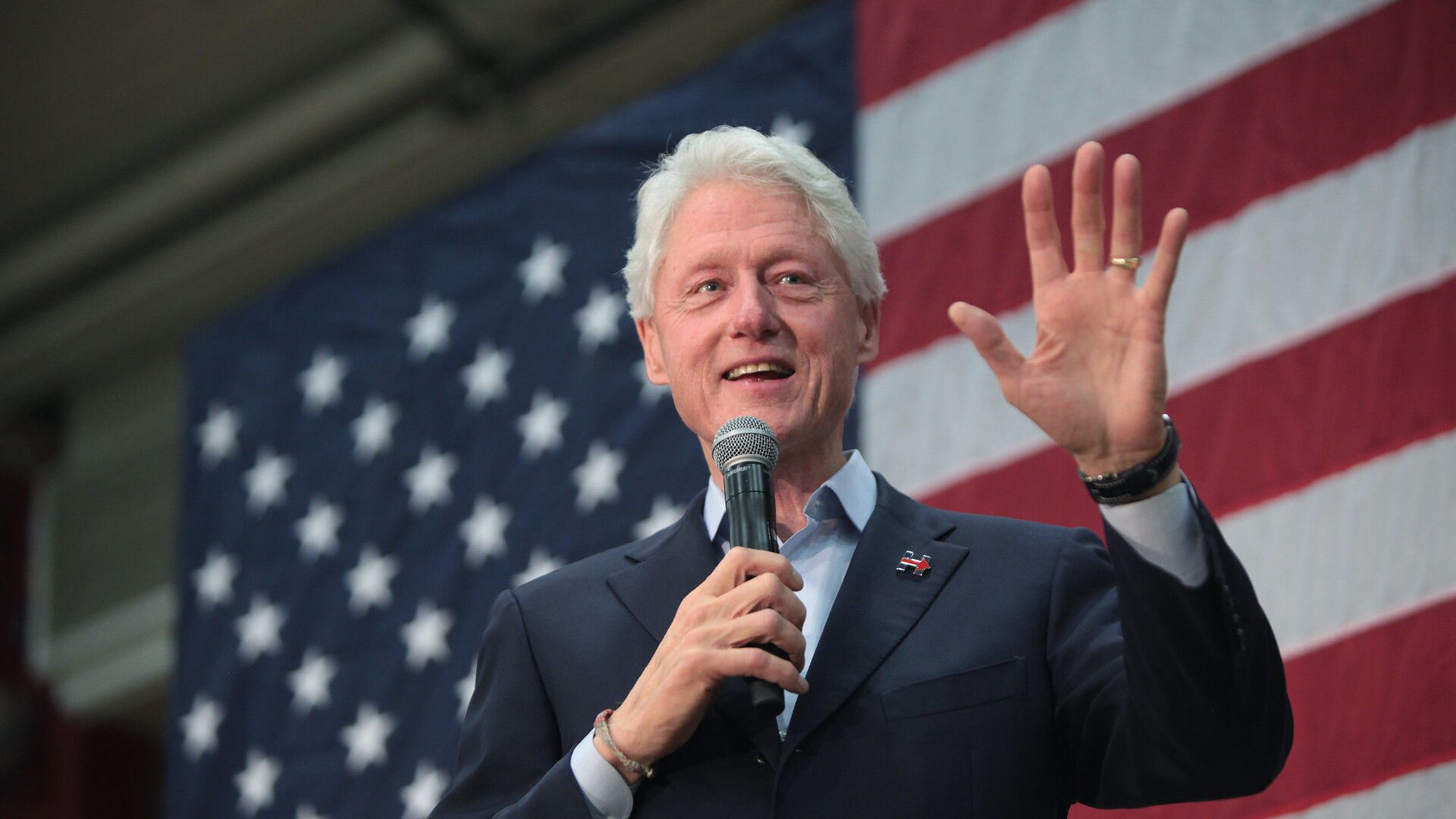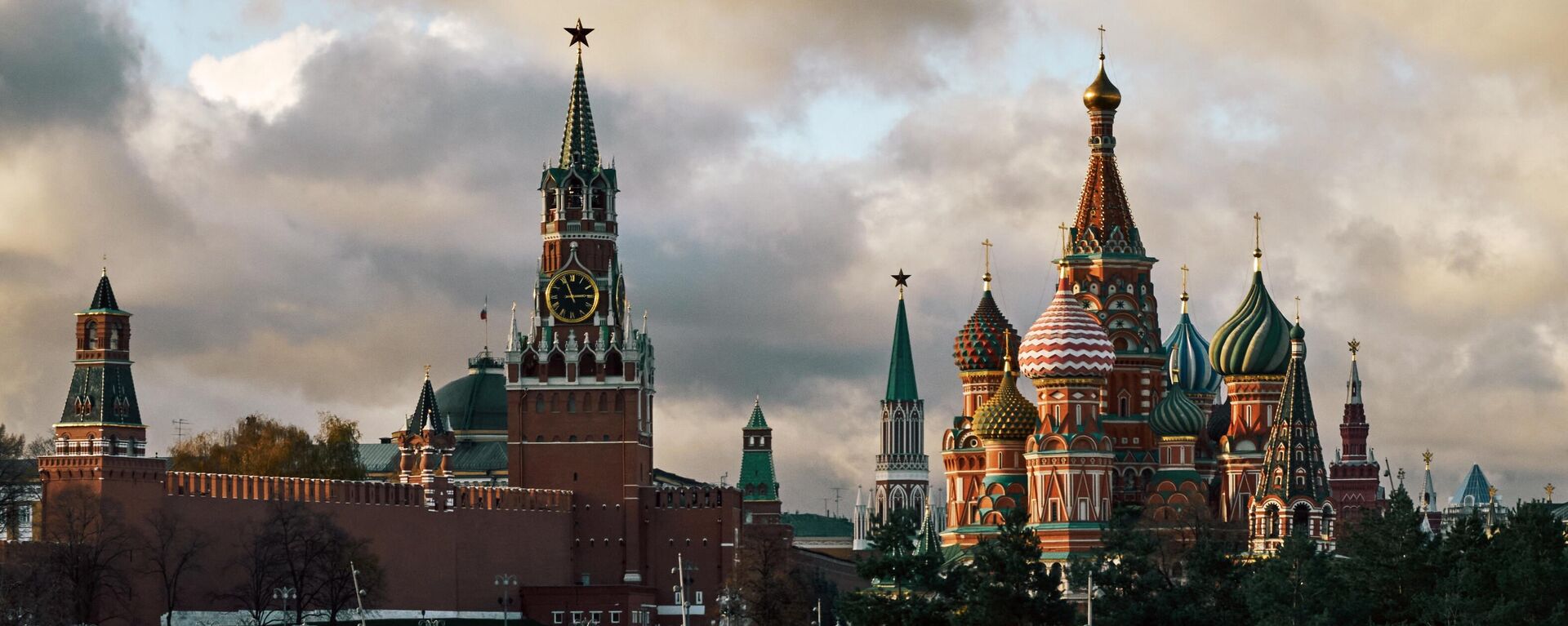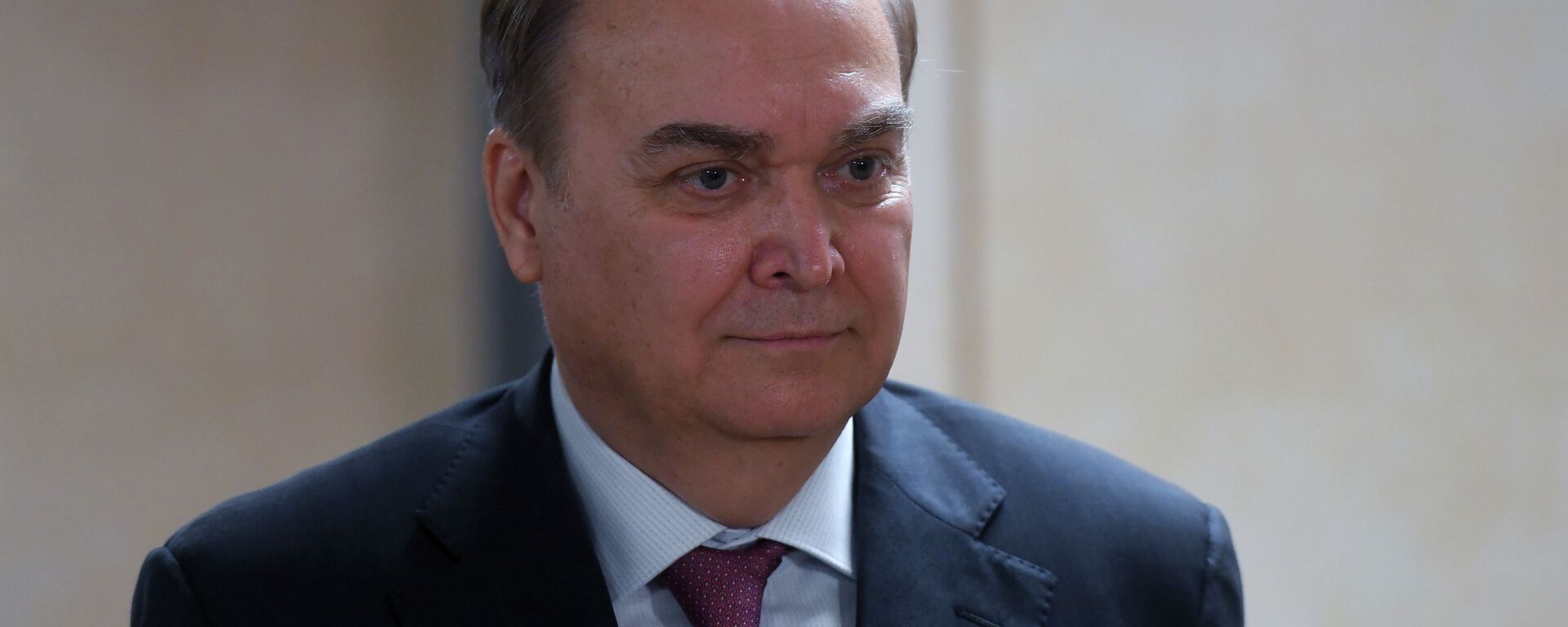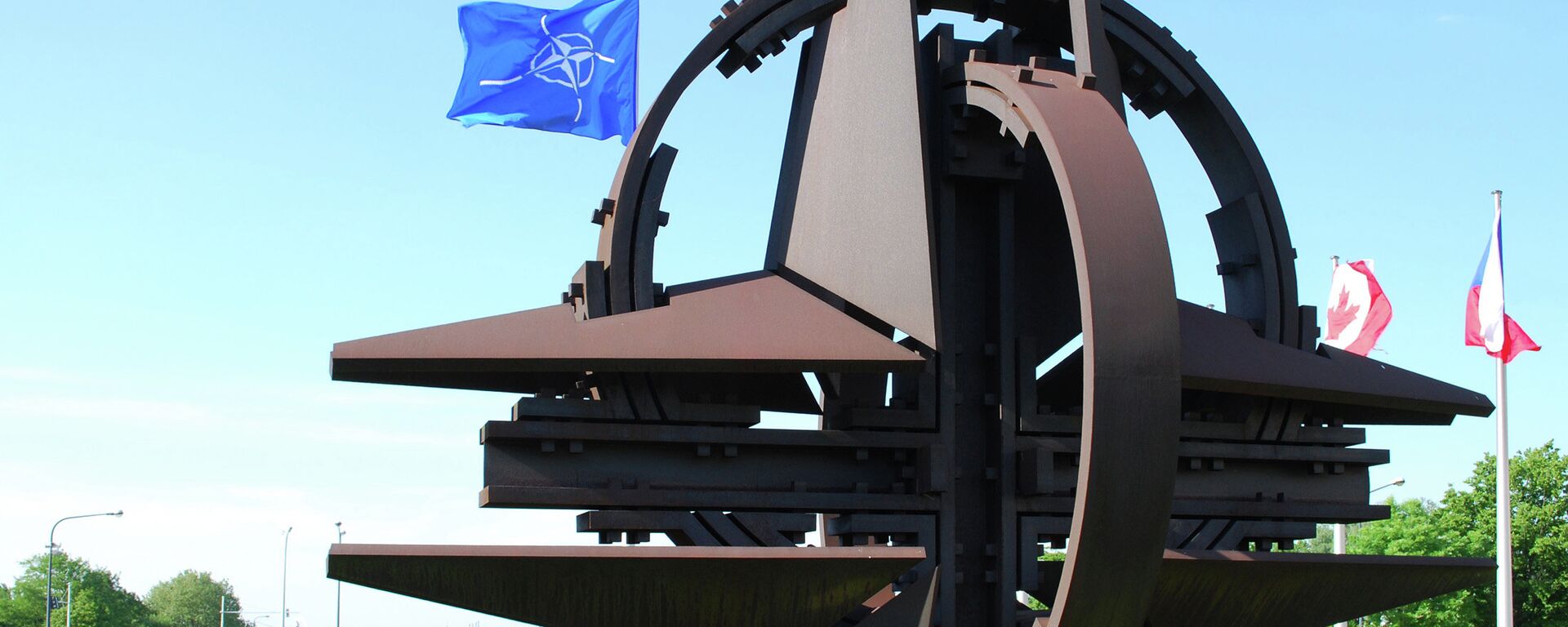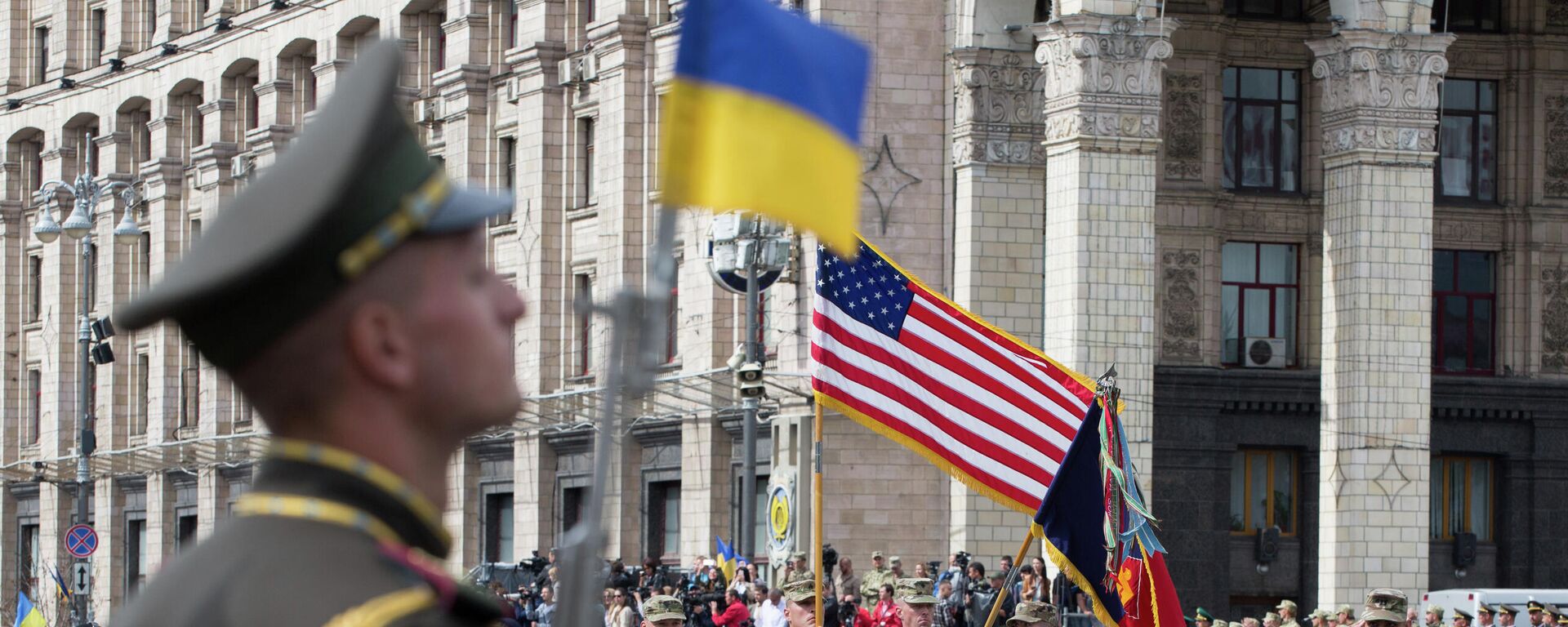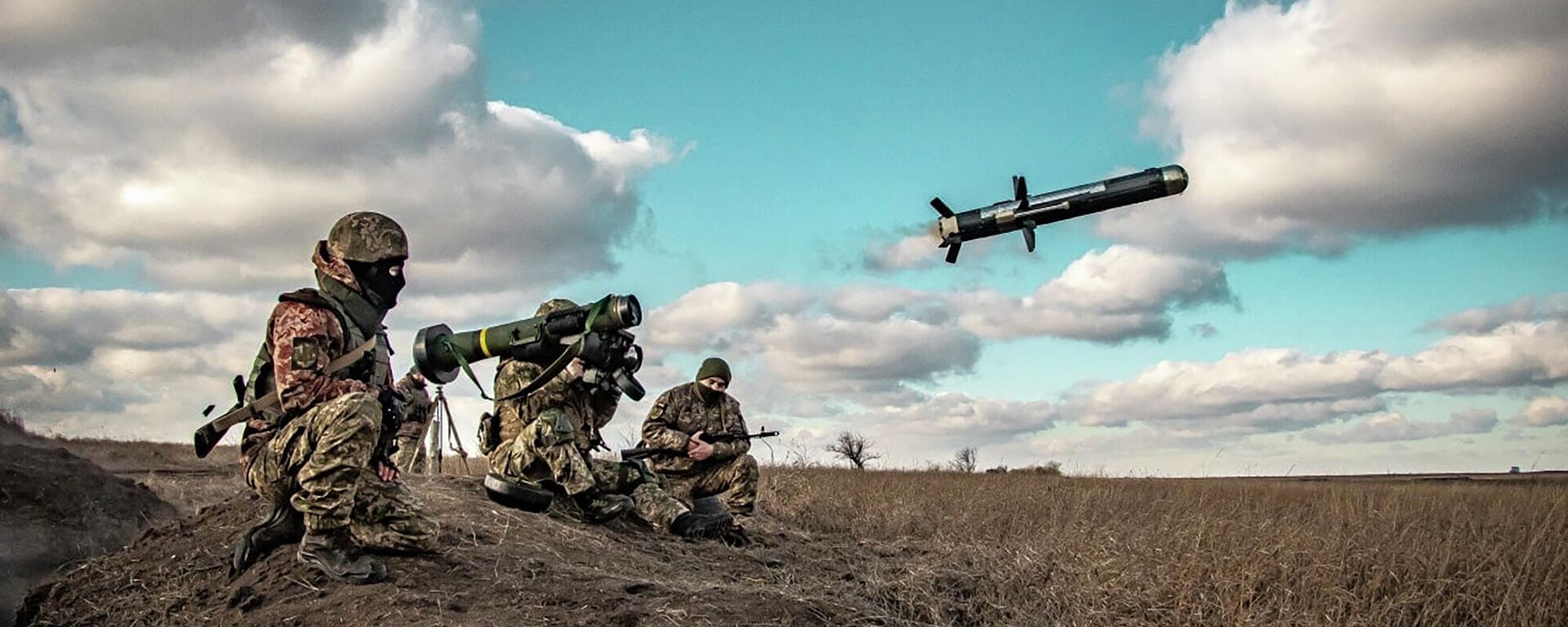Ex-President Bill Clinton Says He Supported ‘Correct’ Albeit ‘Consequential’ Decision to Expand NATO
09:58 GMT 09.04.2022 (Updated: 20:55 GMT 19.10.2022)
Subscribe
In mid-December 2021, Russia handed over draft security agreements which requested legal guarantees of NATO's non-expansion eastward and non-admission of Ukraine to the transatlantic alliance, among other matters. However, the US, the EU and NATO rejected core security provisions of the Russian drafts.
Bill Clinton, the 42nd President of the United States, has said expanding the North Atlantic Treaty Organization (NATO) was a consequential decision and one he maintains was correct.
His support for the alliance absorbing former Warsaw Pact members and post-Soviet states, thus bringing NATO closer to Russia’s border, was prompted by a policy to “work for the best while preparing for the worst,” wrote Clinton in an article for The Atlantic.
The former POTUS, whose second term in office saw Poland, Hungary, and the Czech Republic join NATO in March 1999, weighed in on the argument that NATO expansion had laid the groundwork for current developments in Ukraine. NATO had opened the door to Ukraine and Georgia's "Euro-Atlantic aspirations for membership" in 2008 at the alliance's Bucharest summit.
Moscow has spent years voicing concerns about the implications that Ukrainian NATO membership would have for Russian and regional security, calling Kiev’s NATO bid a 'red line' which it would not allow to be crossed after several waves of eastward expansion by the alliance.
Last December, Moscow released its draft proposals on security guarantees between Russia, the US and NATO. The proposed agreement called on both countries not to deploy forces and missiles in areas where they might be perceived as a threat to one another's national security, limit deployment of intermediate and shorter-range missiles, and urged a halt to NATO's eastward expansion.
A second proposal, between Russia and NATO, similarly proposed a halt in the Western alliance’s expansion. Furthermore, it contained an explicit request that Ukraine not be allowed to join the transatlantic alliance, among other matters. However, the US, the EU and NATO rejected core security provisions of the Russian drafts.
‘Bolstering the Continent’s Security’
The Western alliance began its push east after the end of the Cold War and the collapse of the Soviet Union and the Warsaw Pact bloc. Despite US and NATO officials repeatedly promising Moscow that the alliance would not expand "one inch east" beyond the borders of a reunified Germany in 1990 and again in 1991, then-US President Bill Clinton broke this commitment in 1994. Back then, he had stated NATO's expansion would be a question of when, not if.
Looking back at his time in the Oval Cabinet, Bill Clinton wrote in The Atlantic that he had originally vowed to support Russia’s then-President Boris Yeltsin in “efforts to build a good economy and a functioning democracy after the dissolution of the Soviet Union.”
“I was worried not about a Russian return to communism, but about a return to ultranationalism, replacing democracy and cooperation with aspirations to empire, like Peter the Great and Catherine the Great,” wrote the ex-President.
According to Bill Clinton, at the outset of his administration, in 1993, there had been concerns regarding stability in a post–Cold War Europe.
East Germany’s integration with West Germany, how former Warsaw Pact nations, newly independent Soviet republics would seek security, had been some of the questions uppermost in his mind, wrote Clinton.
According to the 42nd POTUS, he was convinced during his time in office that an enlarged NATO and a growing European Union “would bolster the continent’s security.”
He cited others who similarly shared his stance on NATO expansion: the late United Nations ambassador and later US Secretary of State, Madeleine Albright, ex-Secretary of State Warren Christopher; former National Security Adviser Tony Lake; his successor, Sandy Berger, among others.
However, Bill Clinton had to deal with differing opinion on the matter, adhered to by American diplomat and historian, George Kennan, famous for advocating the “policy of containment” during the Cold War. He had argued that with the collapse of the Warsaw Pact NATO had “outlived its usefulness.”
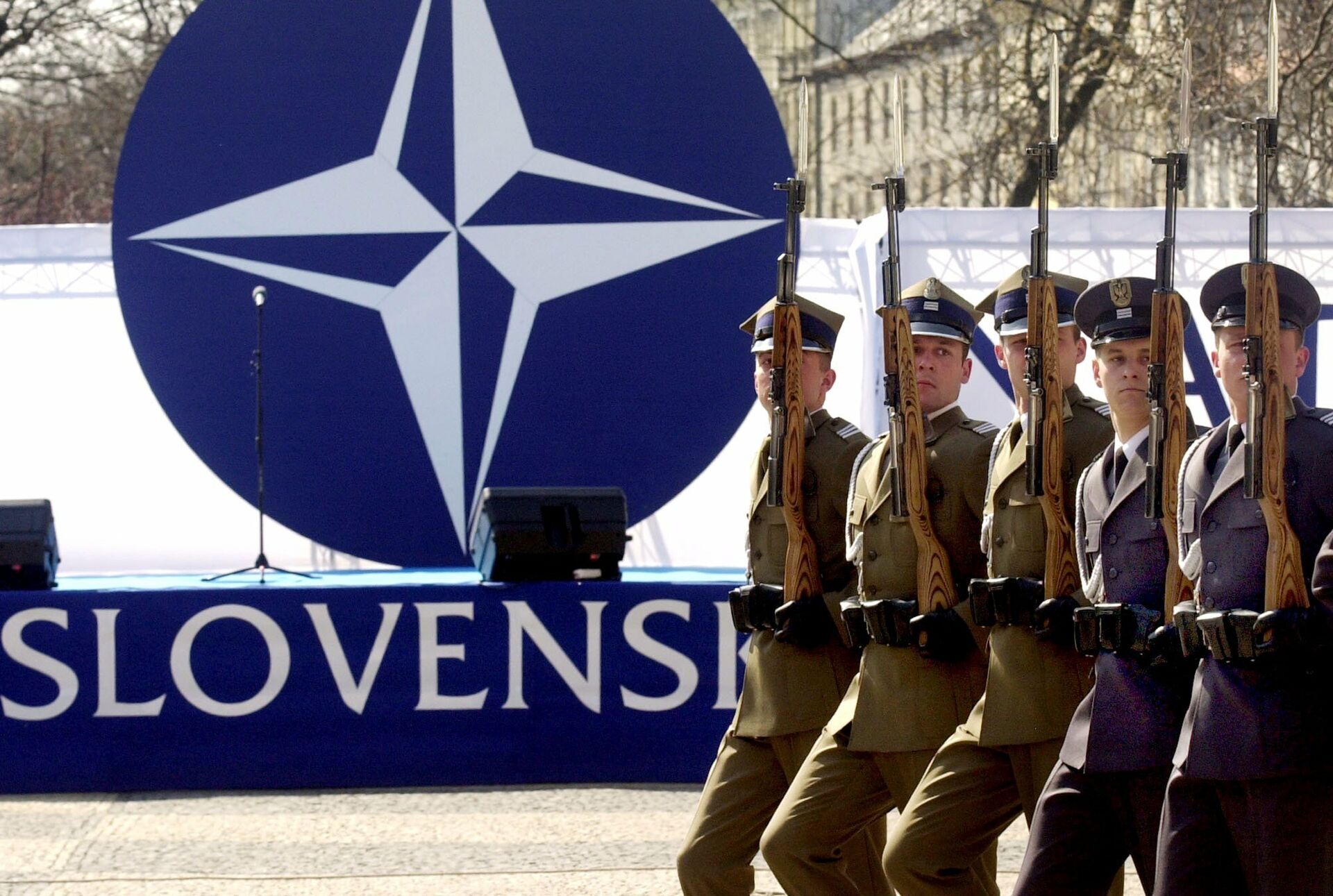
Members of a honor guard present arms in front of the NATO logo during a ceremony to mark the country's entry into the military alliance on Friday, April 2, 2004 in Bratislava
© AP Photo / TASR, Stefan Pusks
Bill Clinton cited New York Times columnist Tom Friedman as saying at the time that Russia would feel “cornered” by an enlarged NATO.
Foreign policy expert Mike Mandelbaum, considered an authority on Russia, also claimed that NATO enlargement would be a mistake and would not serve to promote democracy or capitalism.
However, these stances had summarily failed to sway the ultimate decision taken to enlarge the alliance.
NATO’s Open-Door Policy
Bill Clinton, in his article, reminisced about what he claimed were his “efforts” to “help Russia make the right choice and become a great 21st-century democracy.”
He touted the fact that throughout his 18 meetings with Boris Yeltsin and five encounters with Vladimir Putin he had indicated that the “door was left open for Russia’s eventual membership in NATO.”
Efforts had been made to involve Russia in NATO’s post–Cold War missions, claimed Clinton.
“In 1997, we supported the NATO-Russia Founding Act, which gave Russia a voice but not a veto in NATO affairs, and supported Russia’s entry to the G7, making it the G8,” he recalled.
The former American president dismissed the idea that any attempt had been made to “isolate Russia” as false. “Yes, NATO expanded despite Russia’s objections, but expansion was about more than the US relationship with Russia,” he claimed.
He cited a December 2021 tweet by Carl Bildt, the former Swedish prime minister and foreign minister, “It wasn’t NATO seeking to go East, it was former Soviet satellites and republics wishing to go West.”
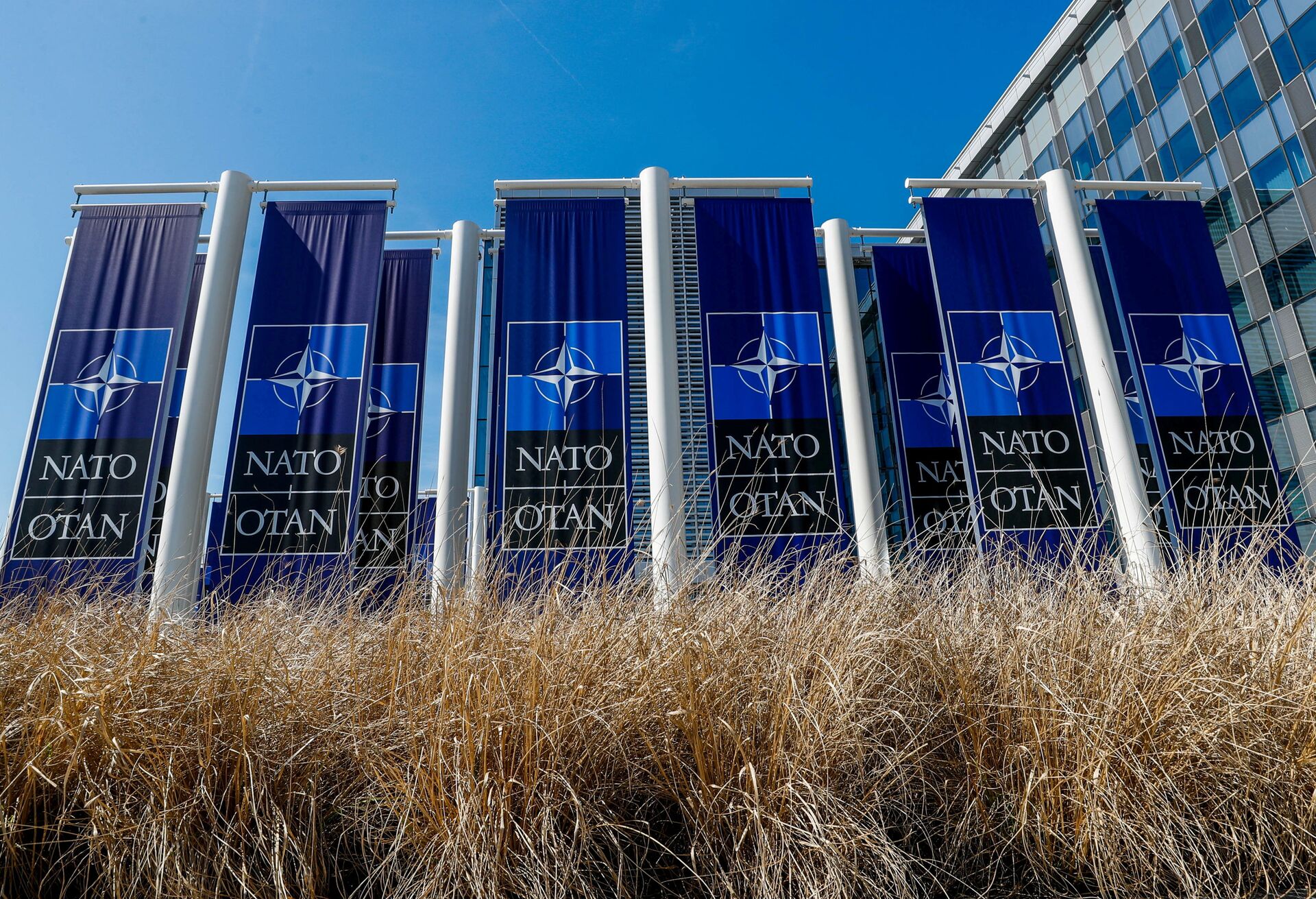
FILE PHOTO: Banners displaying the NATO logo are placed at the entrance of new NATO headquarters during the move to the new building, in Brussels, Belgium April 19, 2018. REUTERS/Yves Herman/File Photo
© REUTERS / YVES HERMAN
Looking back at the groundwork for NATO expansion, Bill Clinton recalled that the decision had required unanimous consent of the alliance’s then-16 members, two-thirds consent of the US Senate, consultation with prospective members to “ensure that their military, economic, and political reforms met NATO’s high standards.”
Clinton maintained that the prospect of NATO membership had “cooled disputes” between Poland and Lithuania, Hungary and Romania, and others.
According to the former American president, Russia’s ongoing operation in Ukraine, which has set the goal of demilitarizing and de-Nazifying the neighbor country, proves the wisdom of NATO expansion.
“We should therefore support President Joe Biden and our NATO allies in giving as much assistance to Ukraine, both military and humanitarian, as possible,” insisted Bill Clinton.
Bill Clinton’s reminiscences come against the backdrop of dangerously escalating developments in Ukraine, that take their roots back in 2014, when Ukraine's neutrality-seeking government was overthrown in a coup by political forces seeking to push the country westward.
A civil war had been triggered in the country's east. In December 2014, Ukraine's parliament formally abandoned the country's non-bloc status and 2019 saw the introduction of amendments to the country's constitution, starting Ukraine's push toward EU and NATO membership.
Earlier this year, prompted by spiraling tensions in Ukraine and concerns that the country might join NATO, Moscow rolled out a proposal that the alliance drop the idea of ever bringing its neighbor into the bloc.
The Kremlin called the possibility of Ukraine joining NATO a national security risk, pointing out that such a move would put the alliance's missiles within minutes of reaching Moscow. The Russian authorities had reiterated that they would be forced to respond to such a threat.
The core of the NATO treaty is Article 5: a commitment that an attack on any country is treated as an attack on the entire alliance.
However, NATO Secretary General Jens Stoltenberg reiterated that the bloc would, under no circumstances, sacrifice its basic principle that any country may choose its own defence alliances. Secretary of State Antony Blinken also emphasized in late January, “NATO’s door is open, remains open, and that is our commitment.”
Amid NATO failing to seriously negotiate with Russia regarding its security demands and escalating attacks by Kiev authorities against the Donetsk and Lugansk People’s Republics (DPR and LPR) throughout an eight-year offensive targeting the predominantly Russian-speaking Donbass, Russia launched a military operation on 24 February.
The Russian Defence Ministry underscored that Moscow had no plans to occupy the country, with the operation exclusively targeting Kiev’s military infrastructure, aimed at demilitarizing and de-Nazifying Ukraine.
Washington and its NATO allies, however, have targeted Moscow with sweeping sanctions while continuing to supply weaponry to Kiev authorities – something that Russia repeatedly warned would only increase casualties.

